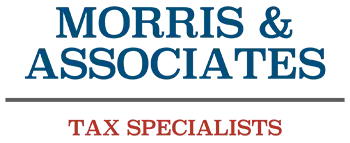When it comes to tax debt, there are a few different options available to people. Bankruptcy and offer-in-compromise are two of the most popular options. Both have their pros and cons, which can make it difficult to decide which option is right for you. In this article, we will discuss the pros and cons of both bankruptcy and offer-in-compromise so that you can make an informed decision about your debt.
What Is Bankruptcy?
Bankruptcy is a legal process that allows people to discharge their debts. This means that the person will no longer be liable for the debt and the creditors will not be able to take any action against them.
There are two types of bankruptcy: Chapter 13 and Chapter 7. Chapter 13 bankruptcy is for people who have a regular income and want to repay their debts over time. Chapter 13 bankruptcy usually lasts for three to five years. Chapter 7 bankruptcy is for people who do not have a regular income and want to discharge their debts immediately.
What Is Offer-In-Compromise?
An offer-in-compromise is an agreement between the taxpayer and the IRS that allows the taxpayer to settle their tax debt for less than what they owe. The offer-in-compromise program is designed for taxpayers who cannot pay their taxes in full and are unable to make payment arrangements with the IRS.
How Can A Chapter 13 Bankruptcy Help You With Your Taxes?
A Chapter 13 bankruptcy can help you with your taxes in a few different ways. First, it will stop any action that the IRS is taking against you. This includes wage garnishment, levies, and liens. Second, it will give you some breathing room so that you can figure out a repayment plan for your debt. Third, it will discharge some or all of your debts, which could make it easier to pay off your tax debt.
How Can An Offer-In-Compromise Help You With Your Taxes?
An offer-in-compromise can help you with your taxes by settling your debt for less than what you owe. This can be helpful if you are unable to make payment arrangements with the IRS or if you want to get out of debt sooner.
It is important to note, however, that not everyone will be eligible for an offer-in-compromise. You must meet certain requirements and the IRS will only accept offers that are considered reasonable.
Pros and Cons of Bankruptcy
Pros
- Stops any action the IRS is taking against you
- Gives you breathing room to figure out a repayment plan
- Discharges some or all of your debts
Cons
- Can be expensive
- Will damage your credit score
- May not be available to everyone
Pros and Cons of Offer-In-Compromise
Pros
- Settles your debt for less than what you owe
- Can be helpful if you are unable to make payment arrangements with the IRS
- May reduce the amount of time it takes to get out of debt
Cons
- Not everyone will be eligible
- The IRS may not accept your offer
- You may have to pay taxes on the forgiven debt
Making the decision to file for bankruptcy or enter into an offer-in-compromise can be difficult. It is important to weigh all of your options and consult with a tax professional before making a decision.
Bankruptcy and offer-in-compromise are both viable options for people with tax debt, but they each have their own pros and cons. You should consider these pros and cons carefully before deciding which option is right for you.
So, which option is right for you? Bankruptcy or offer-in-compromise?
The answer depends on your individual circumstances. If you have a regular income and want to repay your debts over time, then Chapter 13 bankruptcy may be the best option for you. If you do not have a regular income or if you want to discharge your debts immediately, then Chapter Seven bankruptcy may be the better option.
If you cannot pay your taxes in full and are unable to make payment arrangements with the IRS, then you may be eligible for an offer-in-compromise.
We Can Help
Bankruptcy and offer-in-compromise are both viable options for people with tax debt, but they each have their own pros and cons. You should consider these pros and cons carefully before deciding which option is right for you.
The answer depends on your individual circumstances. If you have a regular income and want to repay your debts over time, then Chapter 13 bankruptcy may be the best option for you. If you do not have a regular income or if you want to discharge your debts immediately, then Chapter Seven bankruptcy may be the better option. If you cannot pay your taxes in full and are unable to make payment arrangements with the IRS, then you may be eligible for an offer-in-compromise
At Morris and Associates Tax Specialists, we understand how difficult it can be to make the decision to file for bankruptcy or enter into an offer-in-compromise. We can help you evaluate your options and make the best decision for your unique circumstances. Give us a call today to set up a consultation. We look forward to helping you resolve your tax debt problems.







